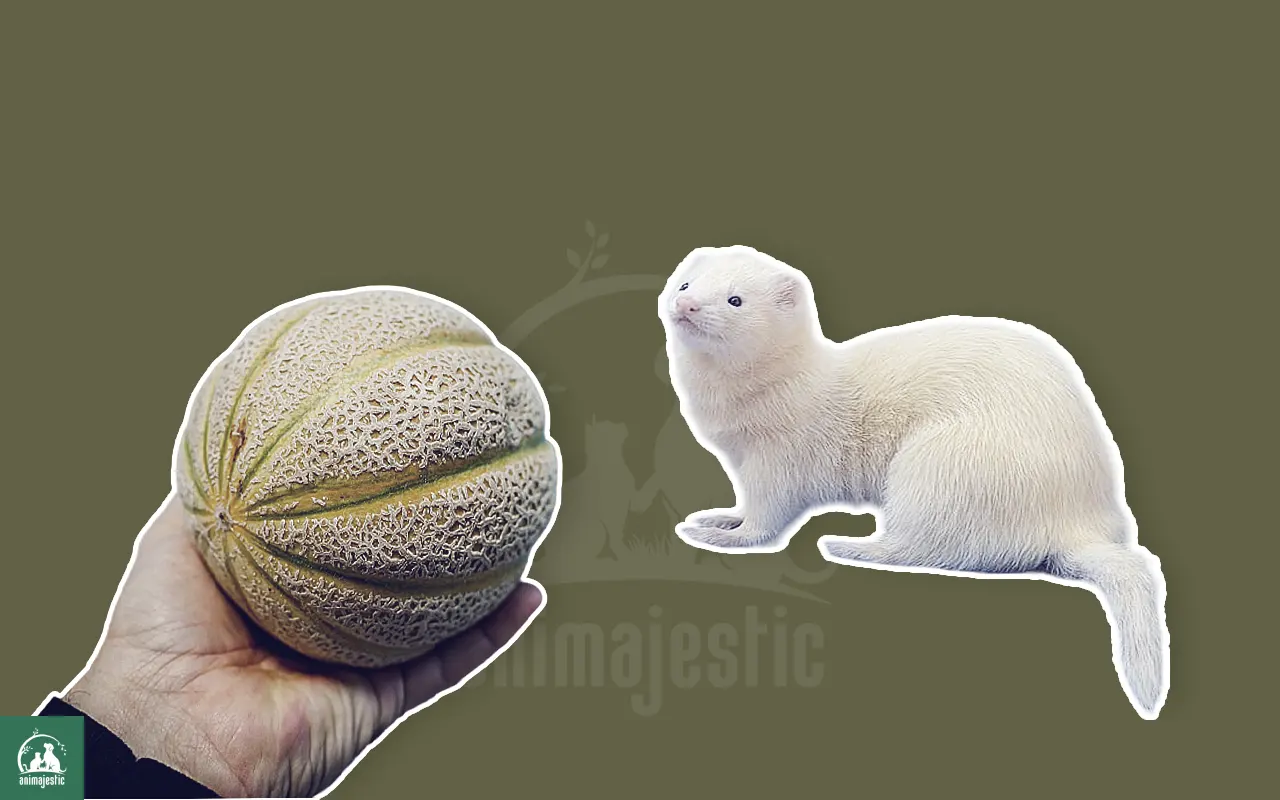An essential piece of being a diligent and caring pet owner involves understanding the ins and outs of your pet’s nutritional needs and preferences. If you’re a proud parent of a ferret, your duty extends to the nitty-gritty of their dietary habits.
“Can ferrets eat melons?” is a question that might seem simple; the answer isn’t. Understanding this requires a deep look into ferret’s dietary needs, the nutritional content of melons, and how the two intersect.
So, let’s get to uncover an accurate answer for responsible pet parenting.
A Peek into a Ferret’s Plate
To decide if melons have a place in your ferret’s meal plan, understanding the dietary needs of ferrets is paramount. Here’s a look at what a typical diet for a healthy ferret entails:
- Protein-Focused: Ferrets are obligate carnivores, which means they require a diet rich in animal protein.
- High Fat: Their incredibly high metabolism rate requires a good supply of fat.
- Low in Carbohydrates: Ferrets do not handle carbohydrates efficiently, potentially leading to health problems.
With this key nutritional profile well established, let’s now throw a spotlight on melons, the protagonists of our query.
Melon Nutrients
Melons, the refreshing essence of summer, are loved for their taste and hydration qualities. This delectable fruit brings with it an array of nutrients:
- Water: Melons majorly consist of water—around 90%—making them an ideal hydrating snack.
- Sugar: Roughly around 6% of a melon’s weight consists of natural sugars.
- Fiber: 100g of melon provides approximately 0.9g of dietary fiber.
- Vitamins & Minerals: Melons are rich in Vitamin A and C and carry a moderate amount of potassium and B-vitamins.
Now that we have understood the dietary needs of ferrets and the composition of melons, it’s time to evaluate if they can walk hand in hand.
Can Ferrets Eat Melons?
Simply put, The answer is NO. Ferrets and melons do not mix well. If you’ve been crossing your fingers for a sweet verdict, unfortunately, the answer might not be as delightful as you expected.
The crucial reason lies in the gap between a ferret’s carnivorous dietary requirement and the nutrient profile of a melon.
Don’t go yet.
Let’s go deeper into the benefits and potential pitfalls of introducing melons into a ferret’s diet.
Implications of Feeding Melons to Ferrets
Every new food in a pet’s diet brings along a host of potential benefits and downsides. It’s crucial to explore these to make an informed and responsible decision. Let’s uncover the pros and cons of feeding melons to our furry friends.
Potential Advantages
Truth be told, no significant benefits can be drawn from feeding melons to ferrets. However, very small quantities might not necessarily harm them and could potentially help with hydration due to the high water content.
Potential Downsides
Ferrets, being obligate carnivores, face potential health risks when consuming foods high in sugar or fiber — two essential components found in melons:
- Digestive Issues: Ferrets have a short digestive tract designed for processing meat. High fiber foods can cause blockages and other complications in their digestive system.
- High Sugar Content: The sugar content in melons is way too much for a ferret’s body to handle. Over time, this could lead to obesity and insulinoma, a severe condition affecting the pancreas.
- Nutrient Deficiency: If a ferret fills up on foods like melons instead of eating a proper protein-based diet, this can lead to nutrient deficiencies.
Guidelines for Feeding Melons to Ferrets
While it’s evident that melons are not the ideal food for ferrets if you still wish to allow your furry friend a little taste of this fruit, here is what you need to remember:
- Starting Small: It’s crucial to start with a tiny piece and observe how your ferret reacts over the next few days.
- Rare Treat: If no adverse reactions are detected, melon can be an extremely occasional treat, but it should not be a routine dietary element.
- Monitoring after Feeding: Always keep a vigilant eye on your pet post-feeding to watch for any signs of distress, unusual behavior, or changes in their droppings.
Other Alternatives for Ferrets
Rather than risking your ferret’s health with melons, consider providing them with safer, more suitable meal alternatives:
- Cooked Meats: Tender pieces of cooked chicken or turkey can serve as a protein-rich treat.
- Meaty Baby Food: High-quality, meat-oriented baby foods can also be a good option for an occasional treat.
- Commercial Ferret Treats: There are various ferret-appropriate treats available in the market, but always choose high-quality products, preferably with minimal additives.
Taking Charge of Your Ferret’s Dietary Balance
Providing your ferret with a balanced diet is crucial. Here are some directives you need to remember:
- True Carnivores: Remember, ferrets require a diet primarily rich in animal proteins and fat.
- Restrict Sugar & Fiber: Avoid foods high in sugar and fiber, including melons.
- Monitor their Diet: Strictly monitor their food intake and ensure any new food does not replace their regular meals.
Wrapping Up
Unquestionably, you love your pets and want to give them the best. However, it is essential to discern that not all human foods, including melons, are safe for your ferret friends.
The dietary requirements and food tolerance of ferrets are much narrower than those of many other household pets. Understand this, and you’re on your way to ensuring your ferret stays happy and, most importantly, healthy.
From the heart of a responsible pet owner to another, remember that embracing their nature, understanding their needs, and offering a lifestyle most suited to them is the best gift you can give to your ferret.
